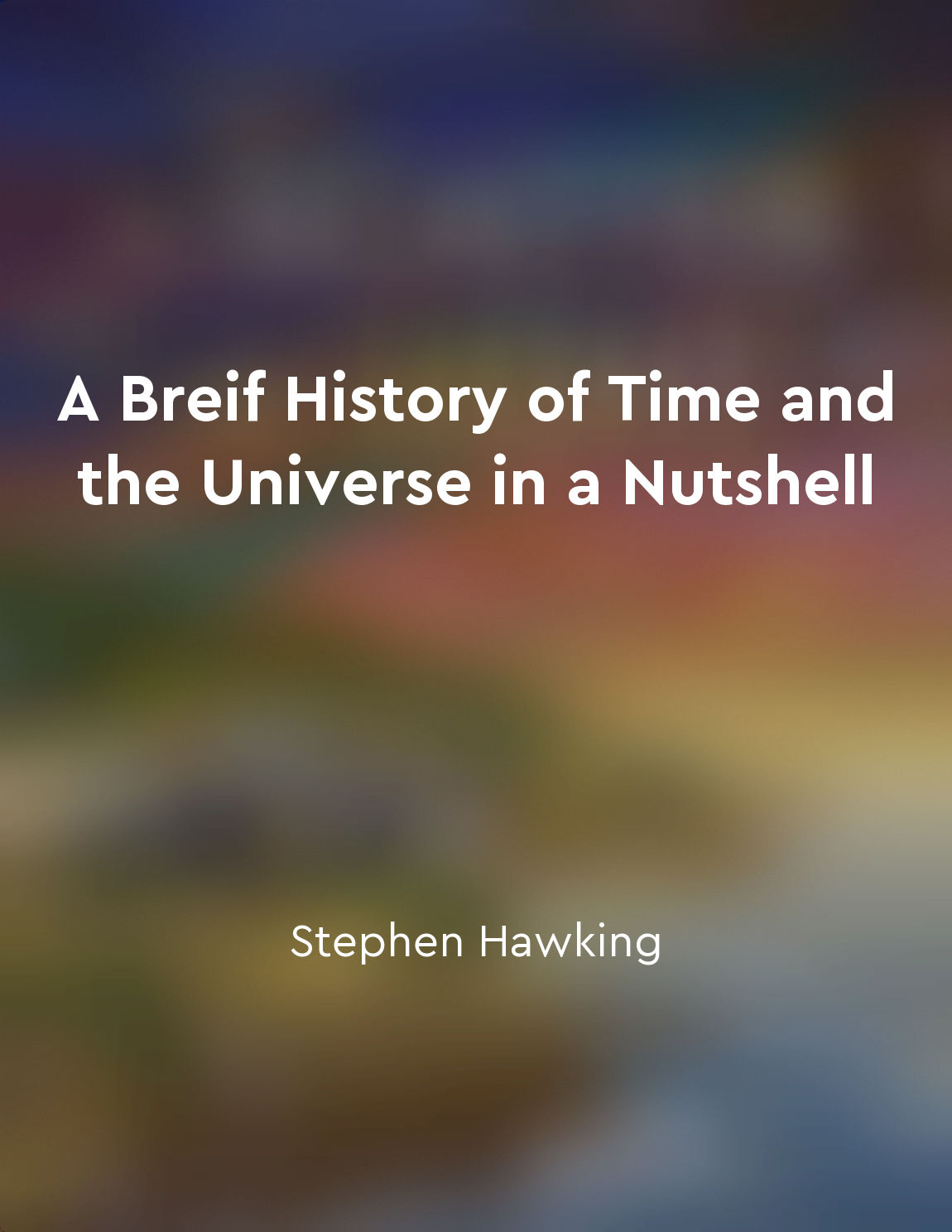Theory of general relativity from "summary" of A Breif History of Time and the Universe in a Nutshell by Stephen Hawking
The theory of general relativity, proposed by Albert Einstein in 1915, revolutionized our understanding of gravity. According to this theory, gravity is not a force that attracts objects to each other, as Newton had thought, but rather a consequence of the curvature of space and time. In other words, massive objects like stars and planets warp the fabric of spacetime around them, causing other objects to move along curved paths. One of the key predictions of general relativity is the bending of light by gravity. This was famously confirmed during a solar eclipse in 1919, when astronomers observed stars near the sun appearing slightly out of place due to the sun's gravitational field. This bending of light is now known as gravitational lensing, and it has since been observed in many different astronomical contexts. Another important prediction of general relativity is the existence of black holes. According to the theory, when a massive star runs out of fuel and collapses under its own gravity, it can form a region of spacetime so warped that not even light can escape from it. This boundary is known as the event horizon, and it marks the point of no return for anything falling into the black hole. General relativity has also had profound implications for our understanding of the universe as a whole. In the 1920s, the Russian physicist Alexander Friedmann used Einstein's equations to show that the universe could be expanding. This idea was later confirmed by observations of galaxies moving away from us in all directions, leading to the development of the Big Bang theory.- The theory of general relativity has stood the test of time as one of the most successful and elegant theories in physics. Its predictions have been confirmed by countless experiments and observations, and it continues to shape our understanding of the cosmos on both the largest and smallest scales.
Similar Posts
The passage of time
The concept of time is a tricky one in physics. Time is not something that flows at the same pace for everyone and everything. ...
The stars hold many secrets waiting to be discovered
The universe is a vast and mysterious place, filled with countless wonders waiting to be uncovered. Among these wonders are the...
Quantum theory and general relativity explain universe's origins and evolution
Quantum theory and general relativity are two distinct areas of physics that have been able to provide profound insights into t...
Consciousness emerges from physical processes in brain
The idea that consciousness arises from the physical workings of the brain is a concept that has been widely accepted in the sc...
Our understanding of the world is limited
Our understanding of the world is limited. This is not a flaw, but a fact. It is a fact because we are finite creatures living ...


